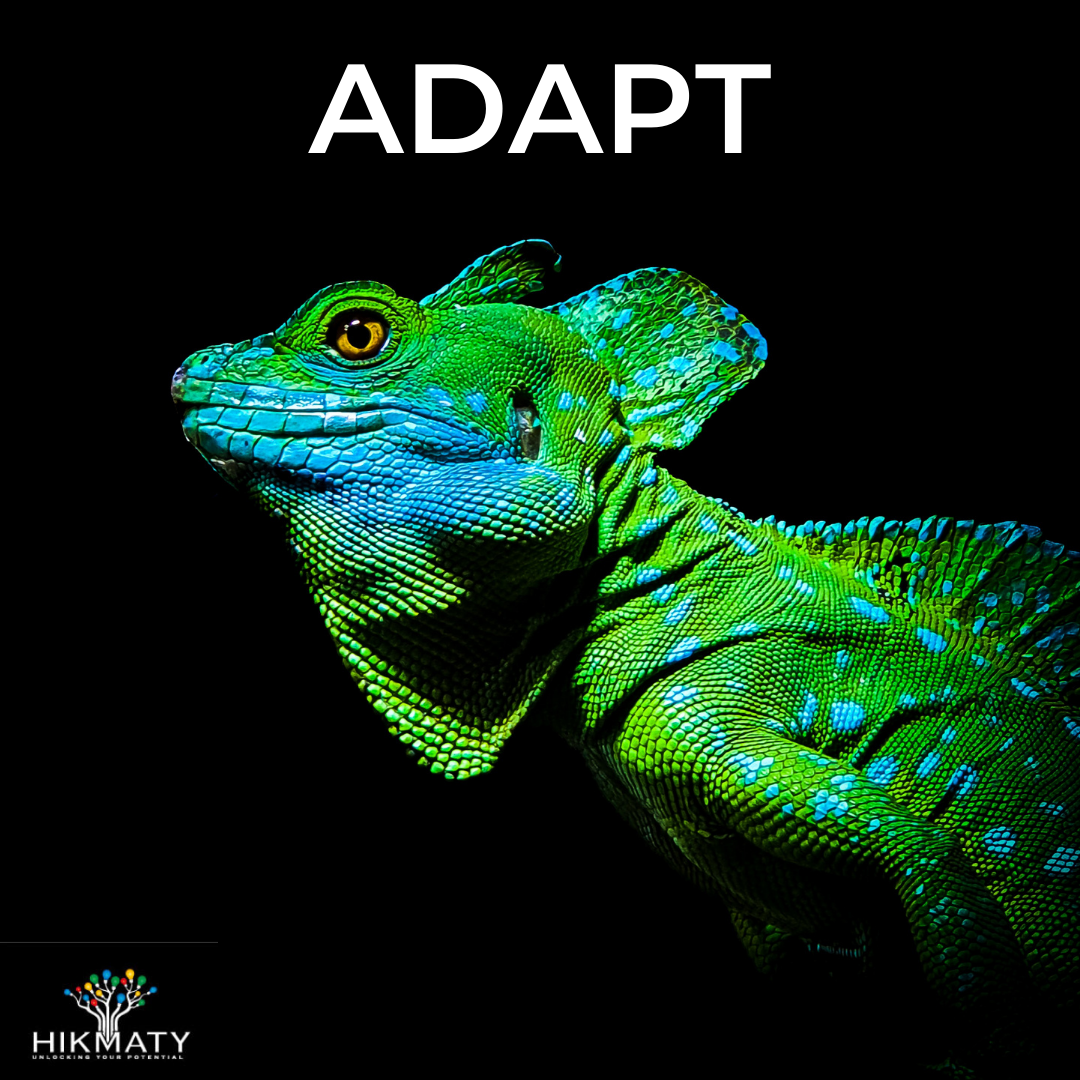Why is adaptability important?

Adaptability is a highly valued skill
We live in a rapidly changing world, and that means there’s a risk that people become experts for a world that doesn’t exist anymore …… We need to look for the people who are willing to rethink and unlearn, who have the adaptability, the mental flexibility, the agility to say, ‘You know what, some of the knowledge that I have might be outdated’.
Adam Grant
If quantum shifts rather than incremental change are becoming the new normal – we need to master adaptability better and faster.
To thrive you need to:
- Adapt to changing circumstances and environments.
- Learn how to roll with it and ask the right questions.
- Take onboard new ideas and concepts.
- Deal with the unexpected and things that challenge or are beyond your current experience.
- Have the personal confidence to respond positively to changes and new ways of working.
- Think ahead and when changes come keep your focus.
- Know when you are stuck and how best to work through it.
- Take a deliberate approach to unlearn what holds you back.
So what can you do to increase your adaptability at work?
Continuous Learning
- Develop a growth mindset where you create, experiment and improvise to try new things.
- Upskill quickly with a willingness and curiosity to learn new ways.
- Focus on the future and stay current to keep relevant.
- Integrate new information, critically reflect on it and draw new conclusions from it.
Intellectual Flexibility
- Be willing to pivot, refresh and reinvent as required.
- Have an open and flexible approach to your work.
- Have a fluid rather than rigid reaction to events.
- Adjust your thoughts and behaviours to fit new situations.
- Shift your priorities in response to the demands of the situation.
Embracing Challenges
- Volunteer, be resourceful and show initiative.
- Build your ability to problem solve in a variety of circumstances.
- See opportunity where others see failure.
- Identify the challenges and see them as moments to build strength.
- Have GRIT – that’s passion and persistence to push through especially when it is hard.
- Have an experimenters mindset where failing is simply part of the learning process.
- Show optimism and positivity under pressure.
Change Agency
- Cultivate hope in the future, self-belief in your abilities and focus to seek multiple pathways to achieve objectives.
- Seek to navigate change rather than manage it.
- Understand the context for changes – the detail and the big picture.
- Be receptive to changes with a ‘can do’ positive attitude.
- Bounce back quickly from setbacks.
Self Awareness and Wellbeing
- Identify and understand how to best use your talents, character traits and strengths to your advantage whilst minimising your weaknesses.
- Know what you stand for and what is important.
- Be confident on the non-negotiables and your boundaries.
- Maintain your resilience to stay grounded.
- Be mindful and acknowledge your thoughts, feelings and needs.
- Build coalitions and connections to support you.
- Celebrate the wins!
Whilst the challenges are increasing so are the opportunities – make sure you adapt to make the most of them.
